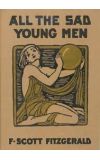
14 May 2013 03:48:57
These frustrations provided material for one of the stories in the collection, "The Lees of Happiness", which features a writer who meets a sorry end before he has had the chance to write his masterpiece. He leaves behind only "passably amusing stories, a bit out of date now, but doubtless the sort that would then have whiled away a dreary half hour in a dental office". Misgivings about his work also led Fitzgerald to add a series of self-deprecating prefaces to the collection – making light of the rollicking tales that were his stock in trade, his apprentice Princeton material, but also the newer, more sober stories – a decision that bewildered reviewers.
The collection that emerges from this disheartened capitulation and anxious apologising is uneven, which gives a snapshot of an author in transition, struggling to reach richer shores. Some stories already possess the gravity of the later work, in particular one that he had struggled to sell, "May Day", in which Fitzgerald's partygoing crowd encounter the violence of May Day 1919. Here we see the desperate as well as the decadent, the angry alongside the apathetic, in a panorama of "the general hysteria and confusion of values which follow war".
Fitzgerald was sure not to make the same mistakes again, and for his next collection chose a suitably serious title, All the Sad Young Men, included only nine stories, and let them speak for themselves. Reading this harmonious collection one wonders how a writer could have made such progress in so few years. It is no surprise to discover that stories such as "The Rich Boy" and "Winter Dreams" were written alongside The Great Gatsby; they share the novel's sorrow for what was once the lifeblood of Fitzgerald's work – the felicities of youth.
Like Gatsby, the collection shows the heights that Fitzgerald could reach, when money problems, alcoholism and tragedy were at bay.

